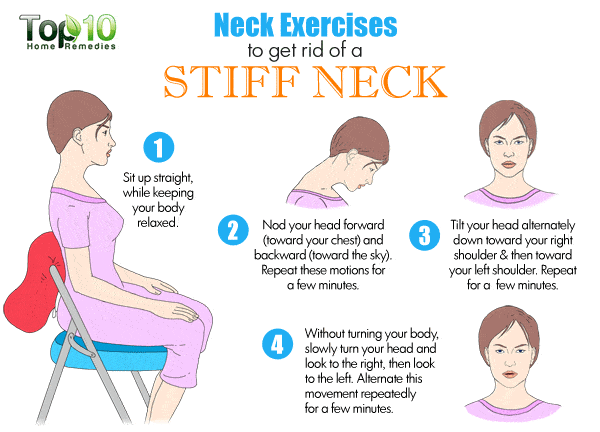How To Sleep With A Stiff Neck
Neck pain can be very uncomfortable, and it can easily cause one to lose sleep. And the irony of most neck pains—or what is commonly called a stiff neck—is that it often comes from a bad sleeping position in the first place. Considering its nature, is it possible to sleep pain-free?
Of course, it is!
The simple tips below will teach you how to sleep with a stiff neck, have a pain-free, good night’s sleep, as well as potentially alleviate your neck pain or any neck problems.
Our Comprehensive Guide On Comfortably Sleeping with A Stiff Neck or Neck Pain
Pillows For Neck Problems
Pick your pillows carefully. They should match your body type and sleeping position so that the pillow can provide the neck support that you need to avoid aggravating your neck pain, the good news is there are pillows designed to alleviate neck pain.
For those who sleep on their back, a petite individual would need a thinner pillow because the natural distance from his head to the surface of the bed when he is lying down is less. You don’t want a thick pillow if you are a petite individual because that will cause your neck to bend forward and cause stress on your neck muscles and bones.
The arc and position of your neck relative to your back when you are standing with good posture should be the same when lying down and while your head is supported by the correct pillow. If you have a muscular build, a thicker pillow is more ideal because the distance of your head from the surface of the bed will be slightly higher compared to a petite person.
It is also a good idea to place a thin pillow roll or a thin bolster pillow to support the back of your neck while lying down. If this kind of pillow is not available, a rolled towel will do. This serves to provide support for the gap between the neck and the bed.
If you sleep on your side, a slightly thicker pillow is needed to bridge the distance from the side of your head to the surface of the bed. The objective is the same with the pillow that supports your head when you are lying down - the pillow should be able to maintain the position of your neck when you are sleeping to match the position of your neck when you are standing with the correct posture.
If the pillow is too thin or too soft, your neck will end up bending towards the direction of the bed. If the pillow is too thick, your head will end up bending away from the surface of the bed. In both cases, the neck bones and muscles are stressed while you are sleeping, and this can worsen your stiff neck.
Having a second pillow under your neck to provide support and fill that gap between your neck and the surface of the bed is a good idea. This will help your neck relax better. Just make sure that the pillow you use to support your neck will be able to maintain the same ideal position of your head and neck.
If you prefer sleeping on your stomach, having no pillow at all is preferable. Sleeping in this position places more pressure on the cervical spine compared to the first two sleeping positions and thus it is better to avoid sleeping in this position.
Limiting Phone Usage
Stop using your phone at least an hour before going to bed. Too much phone use can aggravate neck pain because of the angle that the head and neck need to bend in order to view phone messages or browse the internet. Whenever you need to use your phone, make sure that you elevate it at eye level to help you avoid bending your neck and head.
In addition to bending your neck and head forward when using it while in bed, phones emit blue light and studies have shown that blue light delays your body from releasing melatonin - a substance that helps trigger sleep. And because sleep is important to the body’s natural healing processes, not getting enough sleep from delayed melatonin release can delay the healing process on your neck area.
Stretching The Neck Muscles
Some mild neck stretching before going to bed helps loosen tight neck muscles and relaxes them when it is time to sleep. Follow the easy steps below to do your stretching before sleeping.
- Sit at the side of your bed with good posture. Keep your hands on both sides of your body.
- Raise your right arm in front of you until it is parallel to the floor.
- While keeping the shoulder to the elbow part of your right arm parallel to the floor, move the rest of your arm towards your shoulder.
- Once your hand touches your shoulder, slowly raise your elbow above shoulder level while sliding your hand towards your back.
- Tilt your head to the left slowly until you reach a 45-degree angle. If the neck becomes too uncomfortable before reaching a 45-degree angle, stop at the point where it is still bearable.
- While your head is at this position, move your chin downward slowly.
- Keep this position for 30 to 60 seconds.
- Reverse the steps until your right arm is back at your side.
- Do the same steps on the left side.
- Make a habit of doing 1-2 sets of this stretching exercise before going to bed.
Neck Exercises To Get Rid Of A Stiff Neck

Using A Warm or Cold Compress On Your Neck
Make sure to apply a warm compress on your neck after the stretching exercise before going to bed. Make sure that the warm compress is not too hot, but the warmth is tolerable enough that it can provide comfort to your neck muscles. Keep the warm compress in place 5 to 10 minutes at a time for a total of 30 minutes. You can alternate applying the warm compress on one side of your neck and then to the other side. The warm compress will enhance blood flow to your neck muscles that will help the healing in your neck area.
Some people prefer to use a cold compress for stiff necks or muscle pains. Most of the time, however, it is more relaxing to use a warm compress before going to bed.
A cold compress relieves the swelling of the muscles on the neck area. However, it is often more appropriate to use a cold compress during the daytime when you are not about to go to sleep.
We hope this comprehensive guide on how to sleep with a stiff neck will aid you in alleviating your neck pain and we appreciate you reading our guide. Best of sleeps and sweet dreams!

Hello! My name is James, a researcher of pillows and getting a great night’s sleep with over 10 years of experience! Graduate of the University of Kansas with a Physiology Degree. I enjoy writing, camping, reading, traveling abroad, swimming, and educational research. Contact me at the social links below!

